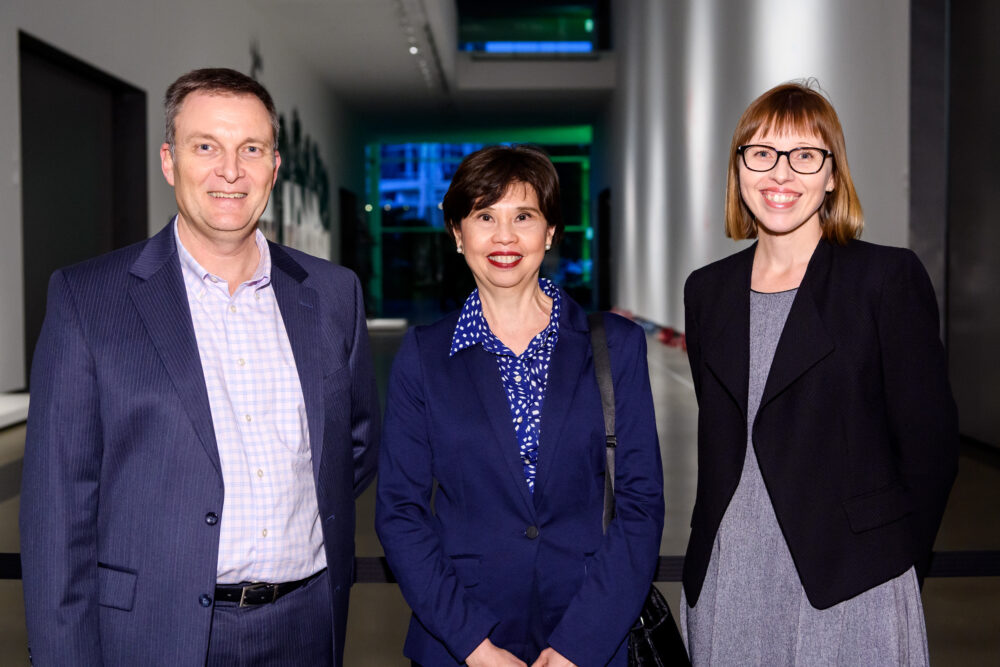On 29 August 2019, Professor Mina Roces from the School of Humanities and Languages at the University of New South Wales delivered the Griffith Asia Institute’s Perspectives:Asia seminar on Women’s Movements in the Philippines.
The lecture focused on cultural constructions of the feminine in the Philippines and the attempts by activists to alter these from 1986 onwards. It discussed the activities and advocacy of feminist Catholic nuns and NGOs including their initiatives that targeted ‘grass-roots’ women through running educational modules (including women’s studies on the air radio programs), and by fashioning former victims and survivors (of prostitution, trafficking, domestic violence and rape) into feminist advocates through participation in theatre and demonstrations.
Finally, the talk analysed the taboo topic of sexualities, reproductive rights, and divorce (the Philippines being the only other country in the world other than the Vatican where divorce is not legally possible), and the unique methods activists use to challenge traditional embedded norms in a cultural context where the Catholic Church has enormous power.
Mina Roces is a Professor of history in the school of Humanities and Languages at the University of New South Wales in Sydney. She is the author of three major monographs: Women, Power and Kinship Politics: Female Power in Post-War Philippines (1998), Kinship Politics in Post-War Philippines, The Lopez Family, 1946-2000 (2001), and Women’s Movements and the Filipina, 1986-2008 (2012).
Another book tentatively entitled The Filipino Migration Experience is under review. She is currently working on a new book project on the history of Filipino elite women and Filipino migrant women as consumers from 1946 to the present funded by an Australian Research Council Discovery Grant. She is book series editor for the Sussex Library of Asian and Asian American Studies book Series published by Sussex Academic press.
Perspectives:Asia is presented by the Griffith Asia Institute, Griffith University and the Australian Centre of Asia-Pacific Art (ACAPA) at QAGOMA. Previous Perspectives:Asia seminars are also available online.
Images: Joe Ruckli

Perspectives Asia Lecture – Women’s Movements in the Philippines 1986-, Prof Mina Roces 
Mr Simon Elliott, Deputy Director, QAGOMA, Mina Roces, School of Humanities and Languages, UNSW and Assoc Prof Sara Davies, Centre for Governance and Public Policy, Griffith University 
Professor Mina Roces, School of Humanities and Languages, University of NSW 
Assoc Prof Sara Davies, Centre for Governance and Public Policy, Griffith University opening Perspectives:Asia lecture 
Professor Mina Roces, School of Humanities and Languages, University of NSW 
Assoc Prof Sara Davies, Centre for Governance and Public Policy, Griffith University opening Perspectives:Asia lecture








